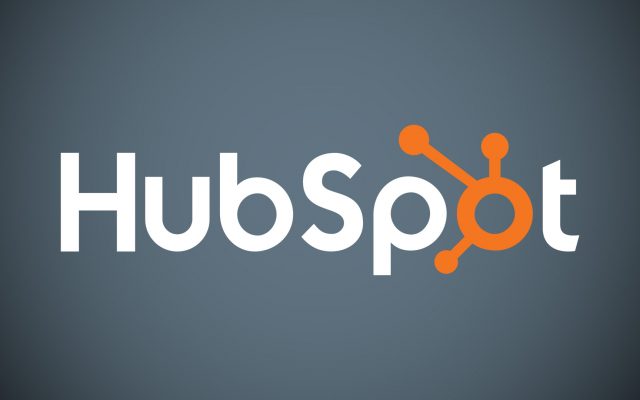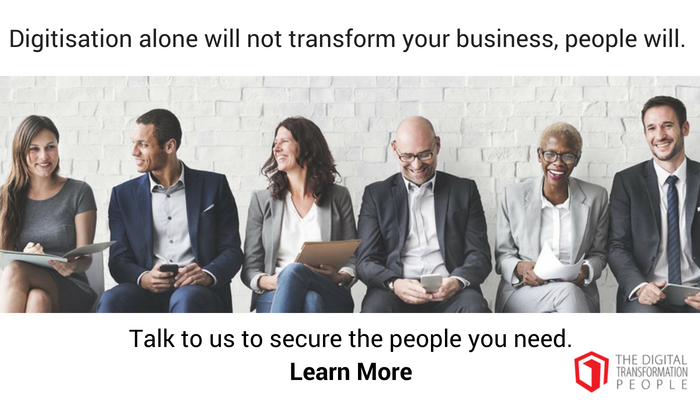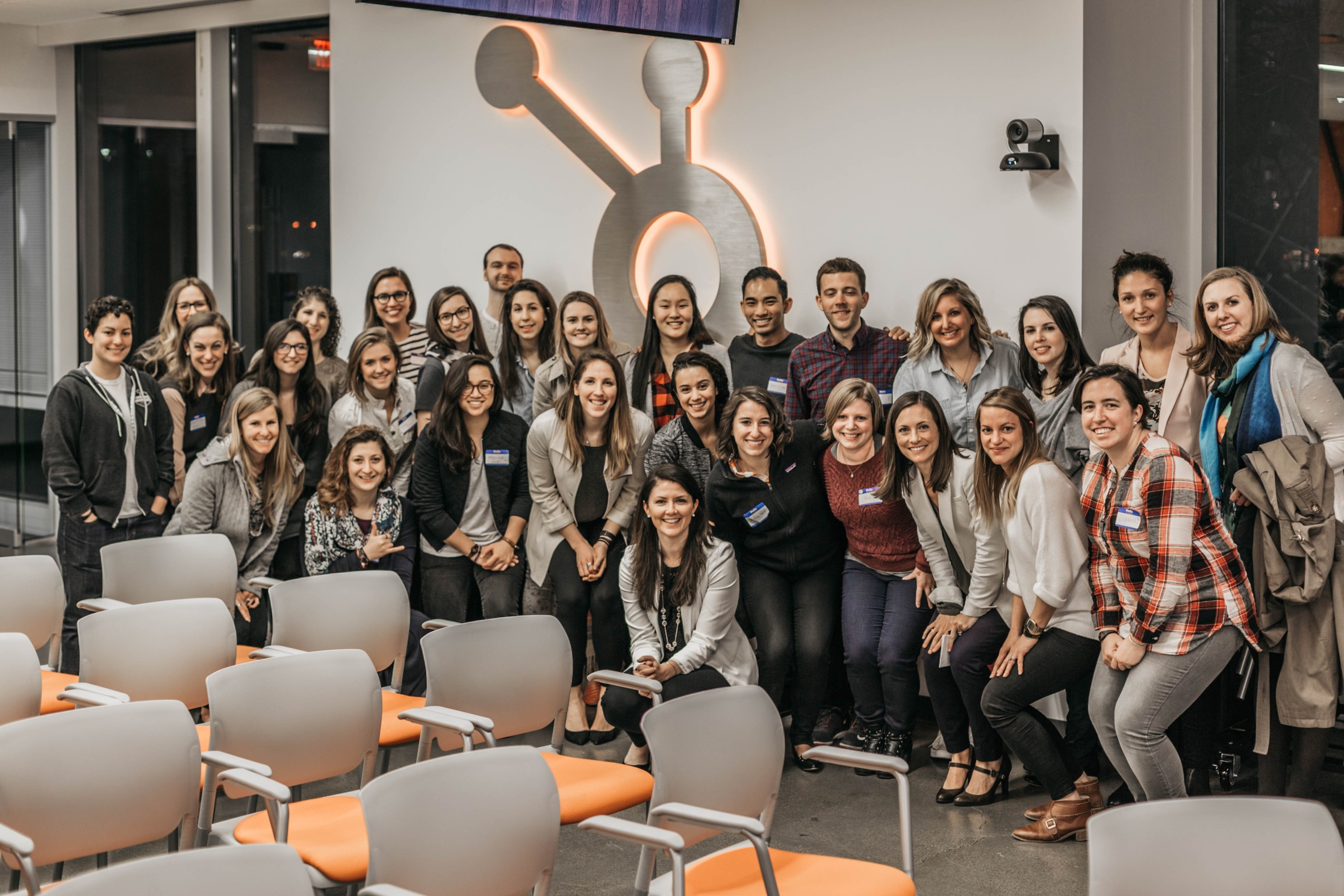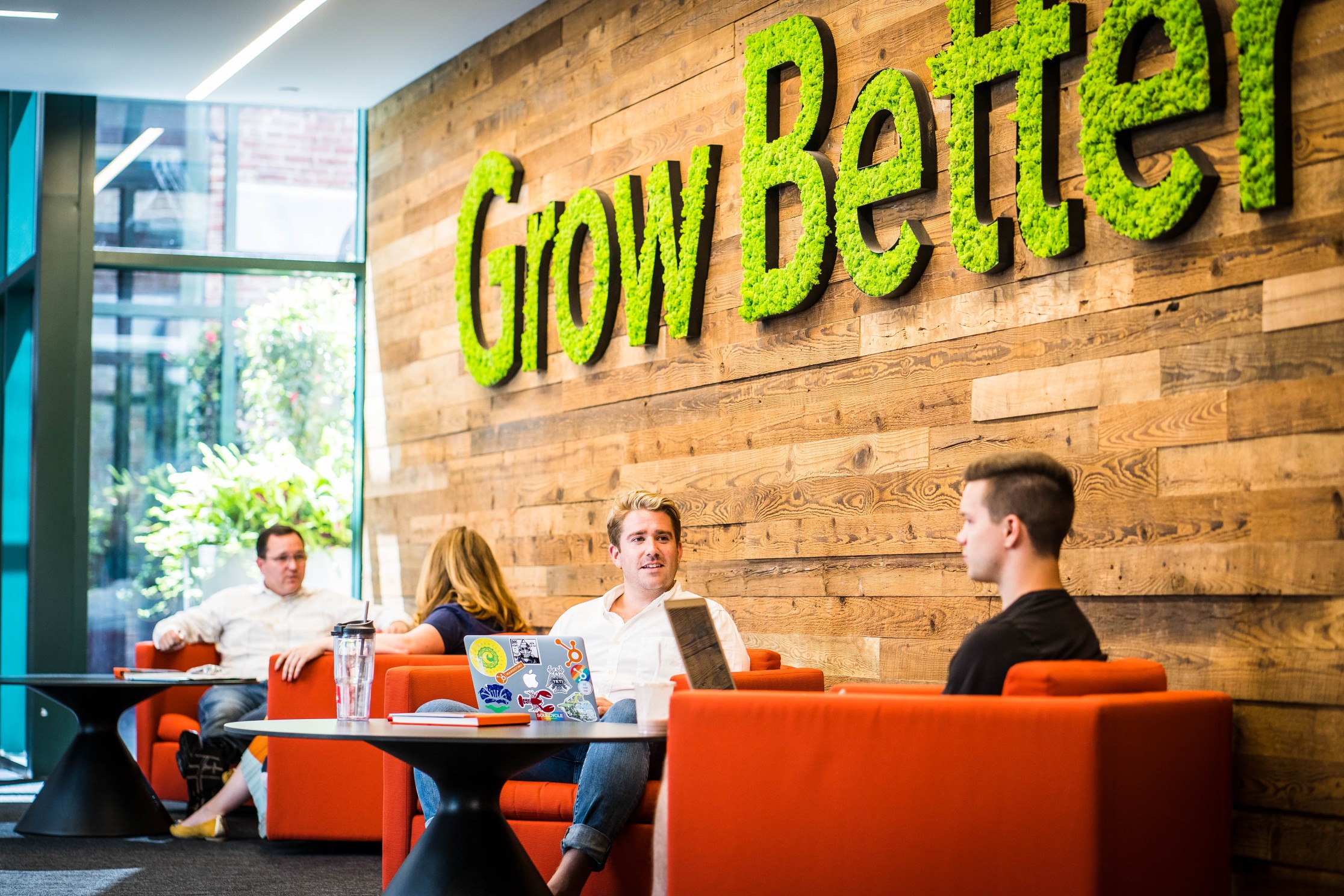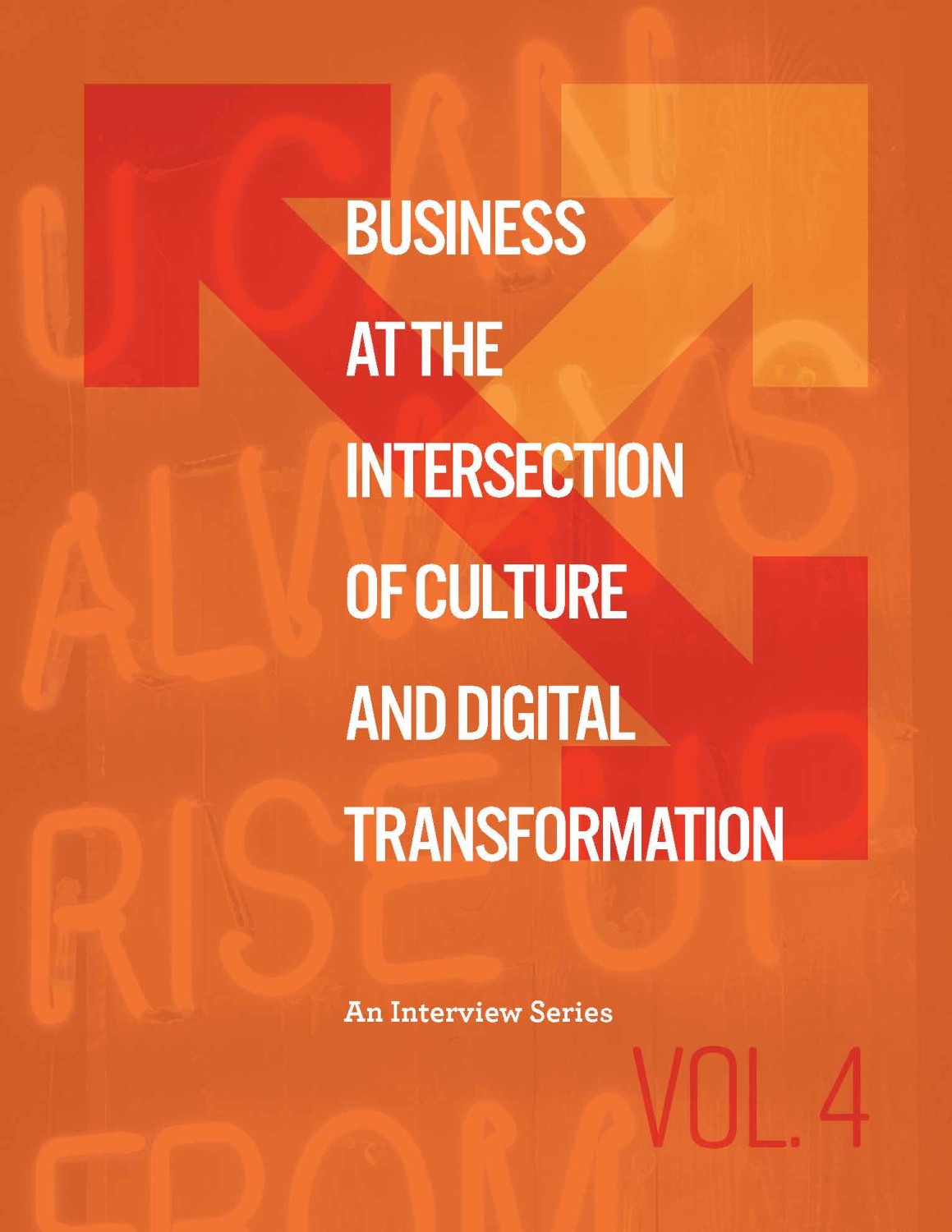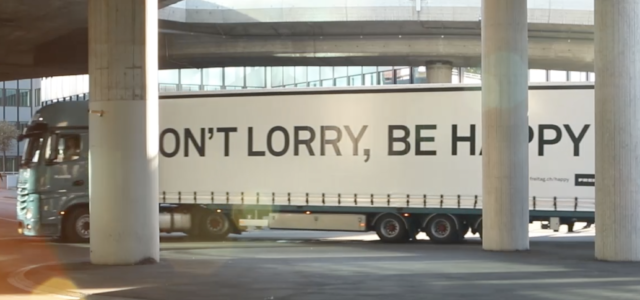Marketing is my first love and as the marketing landscape evolved and became more digital in the past two decades, I’ve been aware of a crop of artful and elegant companies leading that transformation. One of the organizations at the forefront of that digital transformation in the marketing arena was Boston-based HubSpot.
One of the fore-runners of the “inbound” marketing phenomenon and an incredible tool for organizations, particularly small and medium-sized businesses, HubSpot has always had a unique perspective and a very clear mission.
It’s been a delight to understand the culture behind HubSpot’s incredible rise and to see the impact of purpose – and the colour orange – can have on mobilizing the creativity and passion of their people. In this interview, I chat with Katie Burke, the Chief People Officer at HubSpot.
HB: Who are you, what is your role at HubSpot and what does that entail?
KB: I’m Katie Burke, and I’m the Chief People Officer at HubSpot, which is a fancy way of saying that I’m the product manager for our culture, candidate, and employee experience globally at HubSpot. I’ve been with HubSpot for just over seven years and always been focused on building a culture that was a competitive advantage for us.
What that entails is working with our executive team and our employees daily to build a company that people truly love working at, and constantly adapting to feedback on what is working and what isn’t.
HB: I’m quite familiar with HubSpot from my marketing background but can you tell me more about the organization’s history and this colourful obsession with the colour orange?
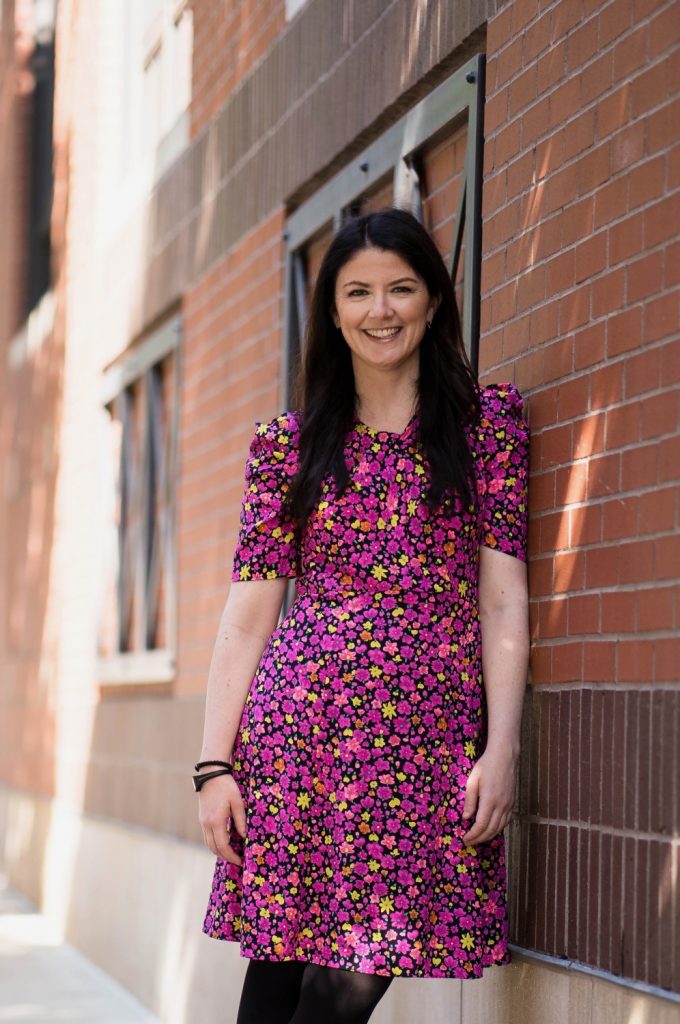
KB: <Laughs> Sure, I’d be happy to. Our founders, Brian Halligan and Dharmesh Shah, started HubSpot because they felt the traditional marketing playbook was broken and they wanted to help organizations “earn attention versus renting it”, so we started as an inbound marketing software company and have now evolved to be a growth platform for 50,000+ customers globally.
Our software includes CRM, marketing, sales, and services tools, and empowers companies to grow better with tools that are both powerful and easy to use. For me, what makes us unique starts with our mission–to help millions of organizations grow better. To me, the better part really matters–we want people to build companies that last, and we want to lead the way on that front.
As for the orange, it’s a funny “origin” story. Legend has it that Brian and Dharmesh picked orange because it was so unique and because very few companies used orange in their branding at that time.
Orange was our way of sticking out from the pack. Fun fact- I hated the colour orange when I started, but it turns out after 7+ years it warms on you! Dharmesh’s wife designed our logo and was one of our first customers, so I always think to thank her when I see how far it’s taken us.
To give you an idea of how wedded we are to the quirky orange colour, a few years back we hit an incredible milestone – 15,000 customers – and what better way to celebrate than release 15,000 orange ping-pong balls in the atrium of our Headquarters. It was a fun way to celebrate the fact that 15,000 people trusted us with their business but also reflective of the way this company acts and how we uniquely celebrate.
HB: This series is about how organizations are digitally-transforming. In your case, HubSpot was always a digital organization. So, how is Hubspot “digitally transforming” and, in your particular case, how are you helping your customers digitally transform?
KB: We started out helping companies get online with their marketing approach, and are still proud to help companies build their digital businesses. Now we also help them do that in smarter and more scalable ways.
A few examples of that–our Marketing Starter product is designed to help people get online and growing with HubSpot in a matter of minutes or hours, not days, and we have invested a ton of energy as a company in the last two years making it easier than ever for small businesses to get online easily and quickly.
At the same time, we’ve built a robust platform of Enterprise tools that make it easier for larger organizations to do things like create localized content and collaborate globally across marketing, sales and services, so we are really trying to make it seamless and easy for businesses to grow digitally, at each and every touchpoint.
Importantly, we’ve always thought of ourselves as a technology company but with a strong connection to and mission to educate and empower people so we offer free content via our HubSpot blog and Academy resources so anyone can learn how to grow better, even if you’re not yet a HubSpot customer.
We also have more resources than ever available to anyone, anytime, via our HubSpot Academy which is the truest extension of our commitment to being a “learning and education” company too.
HB: What is your personal definition of culture and how has that evolved in the 7+ years you’ve been with the company?
KB: I think two things about our culture really matter here. One we’ve always had a culture of helping people first and of sharing what we know with the world. That really hasn’t changed over the course of HubSpot history.
Second, we have a remarkable culture of transparency, so we make a habit of sharing with people not just what has worked for us, as a company and a culture, but also what hasn’t. I’m extremely proud of that because so few companies genuinely practise this.
For me, culture is the promise you make to your candidates, employees, customers, and partners about what they can expect from your business, your leadership, and your decision making. And how you’re perceived by those various groups is ultimately determined by how much you live up to that promise day in and day out.
One thing that is particularly top of mind for me right now, is that culture is often defined by how you treat people when things are tough, not when things are going according to plan.
So one thing I encourage people to think about how a company and their culture responds to adversity, not just prosperity. Those actions and behaviours say a lot about a company.
Some elements of our culture have remained constant, namely our commitment to autonomy and transparency, which have been foundational since the start of the company. But others have evolved–we changed one of our values from “efficient” to “empathetic” when we realized that both global expansion necessitated a new level of understanding and kindness not just to each other but also to our customers.
So our culture has become more global in nature–the way we-, I describe it to people is I want our global office locations to be “siblings not twins,” so I’m proud of the fact that none of our offices is the same, but each of them adds something new and special to our culture as we grow. Our culture is also more remote-friendly and inclusive than it used to be, particularly at this moment.
HB: What project/program/initiative has had the most impact on your culture? Can you explain what it was, why it was needed and what impact its had?
KB: I think our diversity, inclusion, and belonging initiative–we are not even close to done, but we really have worked hard to reframe our entire approach to hiring as being focused on culturally additive folks versus folks who “fit” our culture, and I think we feel like a better company because of it.
I believe a lot of companies wait until they have a “perfect” strategy or approach to get started, and we really began by experimenting with a whole bunch of things and seeing what worked for us, listening and refining from there.
The result is a company that feels markedly more diverse and inclusive in many ways than it did five years ago, though we still have much more room to grow and improve.
HB: What has been your most profound learning about Culture and Transformation in your tenure?
KB: My most profound learning comes back to a quote that was in the original version of the Culture Code deck and remains to this day, which is a quote from Louis Brandeis that “sunlight is the best disinfectant.”
Every time something has gone off the rails for whatever reason, the solution that works is leaning into being transparent around what we are thinking, the why behind the decision, and facing the music with our employees–
I think most employees can deal with disagreement and even disappointment; what they can’t deal with is a breach of trust or transparency.
HB: For those reading this post and going through their own challenges/journey, what advice would you give them related to culture?
KB: Great question. My first recommendation – Embrace the mess. I always say that culture is a little bit like Instagram versus true-life reality. You assume everyone else has it all figured out and your company does not – when in fact we are all trying to figure out what works and what doesn’t and making a mess as we go.
Rather than focusing on other people and overthinking what they have that you don’t, focus on what makes your company uniquely special and delivering on it, the rest will follow.
My only other advice is to create a culture that stands for something. I’m a big fan of the quote from Hamilton (Lin-Manuel for life!) “if you stand for nothing Burr, what will you fall for?”
The same is true of company cultures – if you stand for nothing and try to appeal to everyone, it’s hard to actually contextualize how to make great decisions or great hires based on that. You have to unambiguously stand for something. Then relentlessly deliver on it.
HB: That’s excellent advice, Katie. Appreciate your time – thank you.
KB: My pleasure Hilton. Take care.
I thought it prudent to include a link to the remarkable Culture Code that Katie mentioned in this interview. It’s fantastic.
++++++++++++++++++++++++++++++++++++++++++++++++++++++++++++++++
I strongly believe – like Katie does – that culture is an organization’s most sustainable competitive advantage. And, that any organization who is contemplating a digital transformation, should start by determining if they have the corporate culture to accelerate or impede that transformation.
Article by channel:
Everything you need to know about Digital Transformation
The best articles, news and events direct to your inbox


